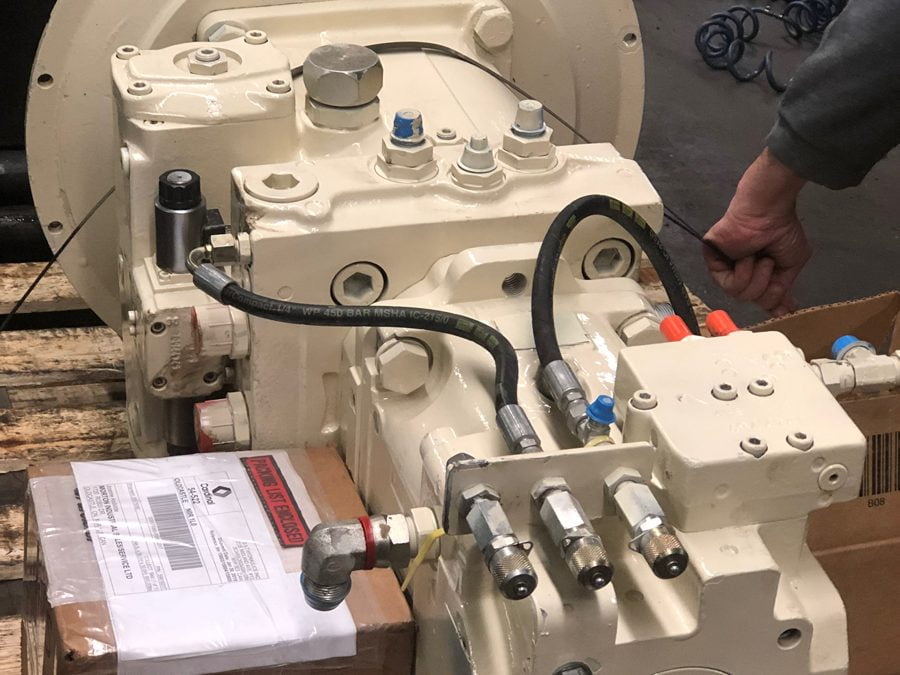When your hydraulic system isn’t working, it can be a result of many things. Here are some of the things you can check if you’re experiencing problems with your hydraulic system.
Preparing for Troubleshooting
Step 1, when it comes to troubleshooting, is figuring out what the problem is. When you don’t know what the problem is, it just makes solving the issue that much harder. For example, you may realize the pump is vibrating in an unusual manner. Here are some questions you can ask yourself:
- How long has this been going on?
- What was going on when you initially noticed the issue?
- Has the system undergone any major or minor changes?
- When was the last time the machine had a maintenance check?
After you’ve gathered the facts and distinguished what the problem is, look at the hydraulic schematics and don’t try to troubleshoot without looking at this.
Common Problems:
There are certain issues that are very common as it pertains to your hydraulic system not working. The list includes an inoperative system and overheating hydraulic fluid. Here are troubleshooting tips for such issues.
Inoperative System:
In this case, you can check to see where the hydraulic fluid levels are. As you do this, remember that these leaks directly contribute to the loss of hydraulic fluid, which can sometimes be in very large portions. Check the filters. If the pump is punctured, has holes, worn, dirty, or out of alignment, the performance of your machine will definitely take a hit.
Slow Operation
This can be a cause of cold temperature, the wrong hydraulic fluid, dirty hydraulic filters, or entrapment of air in the system. Check your pumps, motors, cylinders, and valves.
Erratic Operation
The issues associated the most with this problem include air trapped in the system, cold hydraulic fluid, and damaged internal components.
Excessive Noise or Vibration
Make sure that oil levels are sufficient, you’re using the correct fluid, and that the oil is not foaming. Don’t forget to make sure that couplings are secure and tight.
Overheating Hydraulic Fluid
Your machine should never be generating enough heat that it will actually heat the fluid up. If the fluid is too hot, it could be due to contaminated hydraulic fluid or low fluid levels. There are several different things that can lead to overheated hydraulic fluid.
Low Viscosity
Low viscosity can be a symptom, but also an issue by itself. If this happens, there are three things to check.
1. Damage to the oil
2. Using the wrong type of hydraulic oil
3. Presence of water in the hydraulic fluid
Leaks
There are a number of different problems that could happen if there’s a leak. Damaged containments, damaged hydraulic lines, bad connections, infection injury. You could puncture your skin and get it trapped beneath.
No Fluid Flow
Determine where the flow stops. This could ruin the motor and it could lead to a failure of the pump.
If you have any questions regarding a failed hydraulic system, come see GO Hydraulics at 13-2105 Midland Ave, Scarborough, ON. If you can’t make it in, call us at (416)-293-6188!


Recent Comments